Milk is an excellent source of many essential nutrients, which are important for your child’s proper growth and development, as it is rich in essential nutrients, such as Vitamin D, calcium, and many others. Unfortunately, several studies indicate that Malaysian children and adolescents are not consuming adequate quantities of milk and milk products.
This trend of children drinking less milk as they grow older is made more troubling by the fact that it also corresponds with an increased intake of less nutritious sugary beverages, such as soft drinks or fruit-flavoured drinks. These poor dietary habits contribute to the double burden of childhood obesity and malnutrition.
Not getting enough
The South East Asian Nutrition Surveys (SEANUTS) found that almost half of Malaysian children between six months and 12 years surveyed had vitamin D insufficiency. Their dietary intake did not follow the Recommended Nutrient Intakes (RNI) for Malaysia 2005, with more than a third failing to achieve the requisite figures for energy, calcium and Vitamin D.
Both Vitamin D and calcium are critical for a growing child as they play a major role in bone health. Vitamin D helps your child’s body to absorb calcium, which is important for his physical growth and development. It also helps improve his bone density, thus making it less likely that his bones will break as he ages.
Here are some other foods that contain:
- Vitamin D: Milk and milk products, fatty fish (e.g. tuna, salmon), fish liver oil, egg yolk, or foods fortified with vitamin D.
- Calcium: Milk and milk products, vegetables (e.g. spinach, watercress, mustard leaves, cekur manis, tapioca leaves, kai-lan and broccoli), fish with edible bones (e.g. canned sardines and anchovies), beans and bean products, tofu, and tempeh (fermented soybeans).
Malaysian kids not drinking enough
The results of a study on Malaysian children aged 1 to 10 years entitled “Milk Drinking Patterns among Malaysian Urban Children of Different Household Income Status” show that on average, milk consumption is less than two servings a day, where one serving is equal to one glass (or 200ml). The SEANUTS Malaysia results show only about half a serving per day on average being consumed among school-aged children. This is less than the recommended two to three servings of milk or milk products a day.
This practice of not drinking sufficient milk from a young age may cause the behaviour to become an ingrained habit, which carries over into your child’s adult life. Therefore, it is better to start providing milk as a healthy beverage choice and to encourage him to consume the recommended amount of milk and milk products all throughout childhood. Establishing a habit of drinking milk early would help ensure that he will continue to do so as an adult (who should still be taking one to two servings of milk or milk products daily).
Do bear in mind that milk and milk products are an excellent source of nutrition even for adults, and there is absolutely no reason why your child should drink less milk during his growing years.
Milking the most out of a cup
With so much going for it, milk is one of the most nutritious beverages your child can take. Here are
some simple tips to help him meet his recommended daily serving by making it more palatable.
Chill it!
Serve your child cold milk. You can either refrigerate the milk beforehand or add a few ice cubes just before serving it.
Mix it with drinks!
Use fresh, UHT or powdered milk instead of sweetened condensed milk when making beverages, such as coffee or tea.
Shake it up!
Make a milkshake or smoothie that features milk as the main ingredient. You can make many different varieties just by adding fruits, biscuits, peanut butter or chocolate to it. Get creative and make your own house specialty!
Lactose intolerance?
Children who are lactose intolerant can usually tolerate small amounts of milk (approximately ½ cup, taken at intervals throughout the day. Alternatively, let your child have fermented milk products, such as yoghurt or cheese.
Add it to your recipes!
Look for recipes that feature milk and incorporate them into your repertoire of meals for your family. It could range from baking cookies, making puddings, or even adding it to mushroom or chicken soup in order to make it creamy. You can even add milk to scrambled eggs for a delicious dish. Alternatively, use milk as a replacement for coconut milk (santan).
Great ‘pick-me-up’!
After a long day at school or a tiring morning or afternoon of activities (e.g. football, badminton, or swimming), an ice-cold cup of milk may be just the thing your child needs to help him recover. Flavoured milk is also acceptable provided he does not drink it excessively. There is even scientific evidence that shows milk is better for restoring the body’s fluid balance after intense exercise.
An educational collaboration with Nutrition Society of Malaysia.

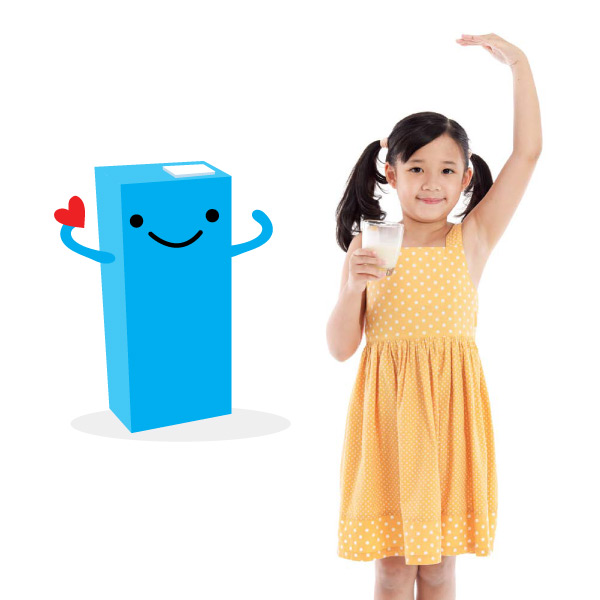

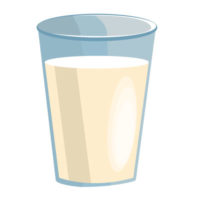
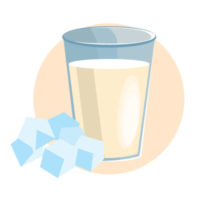
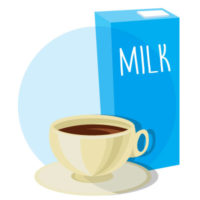
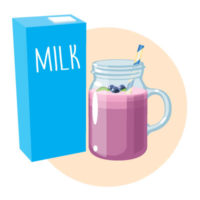
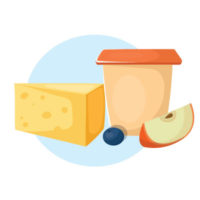
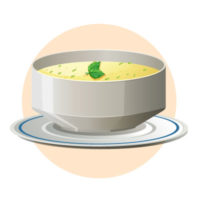




Comments